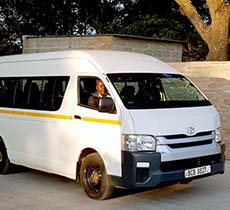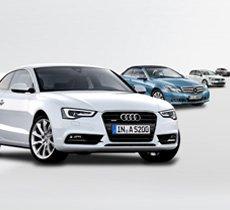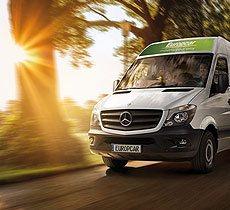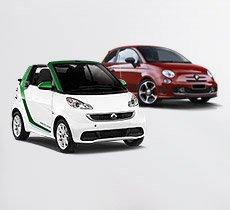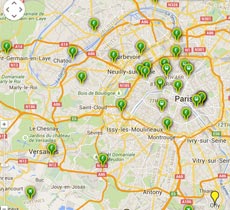Useful Travel Information
We have compiled a list of travel advice to help you to enjoy your stay in Zambia that much more. Obviously no list can ever be entirely complete, but we have tried to cover the most important aspects. The advice listed below is also available as a PDF download.
Click here to download this advice as a PDF file to your computer
OFFICIAL LANGUAGE: English
PEOPLE: Zambia has over 73 different tribes, with a population of about 10 million people, most of whom live in and around the urban centres.
CLIMATE: Temperate to semi-tropical climate with three main seasons.
- Warm days and cool nights from April to July.
- Hot and dry from August to October
- Warm and wet from November to March with typical African thunderstorms.
BEST TIME OF YEAR? That depends on what you want to do! In brief summary:
June to October is the best time for walking and photographic safaris. (August to October is the peak season with much of the water in the game parks dried up and game concentrated near the remaining water holes and rivers.)
November to April is the best time for birders with the arrival of migrant species. A number of the camps in the National Parks close at the end of November and re-open in April.
February to May: The Victoria Falls is at its highest and most spectacular, absolutely thundering over the edge, but prepare to be drenched.
April to mid June: Livingstone Island on the edge of Victoria Falls is closed, river levels dependent. Some river based adrenaline activities may also be closed.
WHAT TO BRING
Please note that luggage is restricted to 12kg packed in soft bags for some internal flights within Zambia. Kindly contact us for confirmation.
Whilst there are no regulations for dress code, it is customary in Zambia for women to cover their legs for the sake of modesty. We ask that you please respect this, particularly in rural areas. Both men and women dress smart casual in the evenings at safari lodges.
Lightweight casual clothes can be worn all year round, with a warm jacket for early winter mornings and evenings. Smarter evening clothes are advisable for guests staying at lodges should they wish to be a little more formal for dinner.
For white water rafting, shoes which are suitable for rock climbing but which can get wet and can be strapped securely to the foot are essential.
For safari activities casual, comfortable, lightweight clothing in khaki, green and beige colours are recommended. Pale or bright colours are not advisable for walking safaris as the animals can easily see these shades. (Shorts or trousers are best for walking safaris)
Light cotton tops and cotton trousers
Long sleeve shirts (even in summer; to protect from the sun & mosquitoes)
Shorts or a light skirt
Jeans or trousers for evenings and cooler days
Sweater or warm jacket (game drives in open vehicles can be cold in winter)
Women may prefer to use a sports bra for bumpy roads
Comfortable walking shoes/boots suitable shoes for rafting if appropriate
Sun block, sunglasses and hat that doesnt blow off your head easily!
Swimsuit if your lodge has a pool
Light, compact raincoat during the rainy months
Insect repellent, anti-histamine cream, personal toiletries and medication
Binoculars (Each person should have their own pair of binoculars)
If you wear prescription glasses bring a spare pair. For contact lens wearers bring a spare pair of glasses as the dust and insects in the open vehicles can be a problem
WILDLIFE SAFETY
Wildlife can roam freely near national parks. When staying at a lodge please take the utmost care when walking about. If you come across game, do not approach the animal. Elephants in particular can move very fast and can be very dangerous they are scared of humans and can react suddenly without warning. Nile crocodiles occur in the rivers and lakes in Zambia. We advise you not to swim in any local waterways.
PHOTOGRAPHY
Zambia is an extremely photogenic country. From panoramic scenery, wildlife and birds to people and vibrant ceremonies. Rich colour and good lighting conditions abound. It is considered rude to take pictures of people without asking them first. Always bring plenty of film as it is difficult to get in Zambia. Limited film and processing facilities are available in Lusaka. Keep your cameras in a dust resistant, padded case and out of the midday sun.
Camera equipment:
a telephoto lens (200/300mm).
Flash and fast film (400 ASA) for night photography.
Lots of film (64,100,200,400 ASA).
Camera cleaning equipment and a good dust proof bag.
Videos and digital cameras - bring spare batteries
DRIVING IN ZAMBIA
We drive on the left hand side of the road in Zambia and observe standard British driving rules. There are some very picturesque roads, but it is important to be aware of certain issues to ensure your comfort and safety.
Road conditions: Some road conditions in Zambia are extremely bad and you should take due care when driving on unsurfaced roads and where bad tarred road conditions exist. Huge potholes can appear suddenly in the middle of a perfect tarred road without warning always be prepared.
Obstructions: Villages are often located along the edge of roads which results in dogs, goats, children, oxen carts, drunks, chickens, cattle and bicyclists using the road. The majority of Zambians do not have driving licences and are not familiar with general road traffic safety precautions. Please be very aware of this and always be prepared for someone to suddenly step out of the tall grass by the side of the road directly into your path.
Other vehicles: It is important to assume that other vehicles on the road may not necessarily have working brakes, indicators or headlights. We strongly advise against driving after dark in Zambia. It is difficult to see pedestrians, animals, broken down vehicles may not have warning triangles and some vehicles travel at night without lights.
Speed limits: Within towns and settlements the speed limit is generally 50 or 60km/h and 100km/h on open roads, but be very conscious of speed signs. Enforcement of speed limits is strict, Zambian police often have speed traps immediately after speed limit signs.
Police Road Blocks: These are very common in Zambia and generally do not provide much in the way of trouble. However it is important to be aware that an orange traffic cone or a 44 gallon drum in the centre of the road may indicate the presence of a police road block. There may not always be adequate warning of police road blocks. You should be aware of this and slow down so that you can stop if necessary. Below are a questions that might be asked by Police.
1. Passport If you are requested for this, the chances are that the roadblock is in fact an immigration department roadblock. For this reason, if you are a visitor to the country, it is advisable to carry your passport.
2. Driving Licence This is your normal driving licence. Under Zambian Law, you are permitted to drive for three months on your foreign Driving Licence. Your drivers licence must be in your possession at all times when driving in Zambia.
Fuel: In remote areas of Zambia petrol is not commonly used and at times there are shortages of all fuel types. If you intend to travel into these areas we advise that you take extra fuel with you in case.
PAYMENT FOR SERVICES IN ZAMBIA
The currency in Zambia is the Kwacha. The largest note is K50,000, then K20,000, K10,000, K5000, K1000, K500, K100, K50, K20. These notes can look very similar, so be careful when you are paying for items. Dont worry you will soon get used to handling all your thousands of Kwacha! Because of devaluation of the Kwacha there are no longer coins in circulation (K1 is equal to 100 coins which are called ngwee).
Credit cards are becoming more widely accepted in Zambia, however not in remote areas and should not be relied on except in major towns. A commission varying from between 5 7% is generally charged on both credit cards and travellers cheques at lodges/hotels in order to cover the bank charge commission. Most hotels and lodges accept Visa and MasterCard. American Express and Diners are accepted in only a few establishments.
Zambia is a free market economy and foreign exchange can be readily converted. It's best to come into the country with either US dollars or pound sterling cash (or travellers cheques), which can be exchanged at any of the banks or Bureau de Change in the main towns. Travellers cheques attract a commission when changing to other currencies.
Changing Money: USD (United States dollars) are easier to change than Pounds sterling and Euro. It is essential that your USD notes are fairly recently printed with "large heads". Old notes with "smaller heads" (except One Dollar Bills) are not accepted ANYWHERE in Zambia. Some banks will also charge a different rate for small denominations. We recommend that you do have some smaller denominations of USD bills for tips and so on
In larger town centres, USD bills may be accepted for payment instead of Kwacha if you run out of Kwacha. Having said that fuel stations will not generally accept USD.
ATM: The major towns and even some smaller centres across the country have ATM machines now which will allow you to withdraw cash in the local Kwacha currency. Visa is the most widely accepted card at these machines.
Banks: There are banks in most centres across the country. The opening hours are 08:30 to about 14:30 or 15:30 hrs Monday to Friday. It can be difficult to find a bank open on a Saturday. However, there are many bureau de changes and these will be open on Saturdays and week day afternoons.
Theft: Talking of money, there is much poverty in Zambia and displaying your money openly is not advisable or fair to the local people. Please be sensible about securing your valuables. Do not leave them lying around where you will just tempt fate.
HEALTH AND INSURANCE
Insurance: Clients are advised to have comprehensive travel insurance including: medical evacuation; hospitalisation & repatriation; baggage loss and loss of funds through cancellation or curtailment of package booked.
Malaria: Zambia is a high risk malaria area. All visitors must take appropriate prophylactics to prevent them from contracting the disease, which is transmitted by infected mosquitoes. Consult your medical practitioner. It is important to adhere strictly to the dosages, especially for the four to six weeks after their stay in Africa. Guests are further advised to use mosquito repellent and wear long clothing in the evenings and sleep under a mosquito net at night to prevent being bitten by mosquitoes.
If you come down with flu-like symptoms either during, or within four to six weeks after your visit to a malaria area, seek a doctors advice immediately.
Inoculations: A yellow fever certificate is mandatory if you are travelling from an infected area. Vaccinations for cholera, tetanus and yellow fever are advised. Consult your medical practitioner.
A small personal medical kit will give you extra comfort if you do become ill whilst on holiday. However please be aware that any medication MUST be accompanied with a doctors prescription. The Zambian government strictly enforce the law when it comes to drugs of any sort.
Carrying Medicines: A small personal medical kit will give you extra comfort if you do become ill whilst on holiday. However please be aware that any medication MUST be accompanied with a doctors prescription. The Zambian government strictly enforce the law when it comes to drugs of any sort. Many drugs that you can buy across the counter in other countries, such as strong painkillers etc are classified as prohibited in Zambia. If in doubt, get an official prescription and make sure your medication is in a sealed container.
TRAVEL DOCUMENTATION
Please consult your travel agent for the latest visa requirements applicable. The responsibility to obtain correct, current and valid passports, visas, vaccinations, inoculations and re-entry permits where required, is that of the renter alone. There is a small and variable local departure tax. International departure tax is presently US$20.00
ADDITIONAL POINTS TO NOTE:
The possession of pornographic material is illegal within Zambia. The use of rude words and derogatory terms could be easily misconstrued and is considered highly offensive. Please be considerate to avoid causing undue offense.
E&OE.

